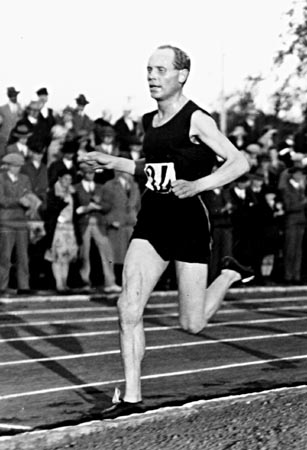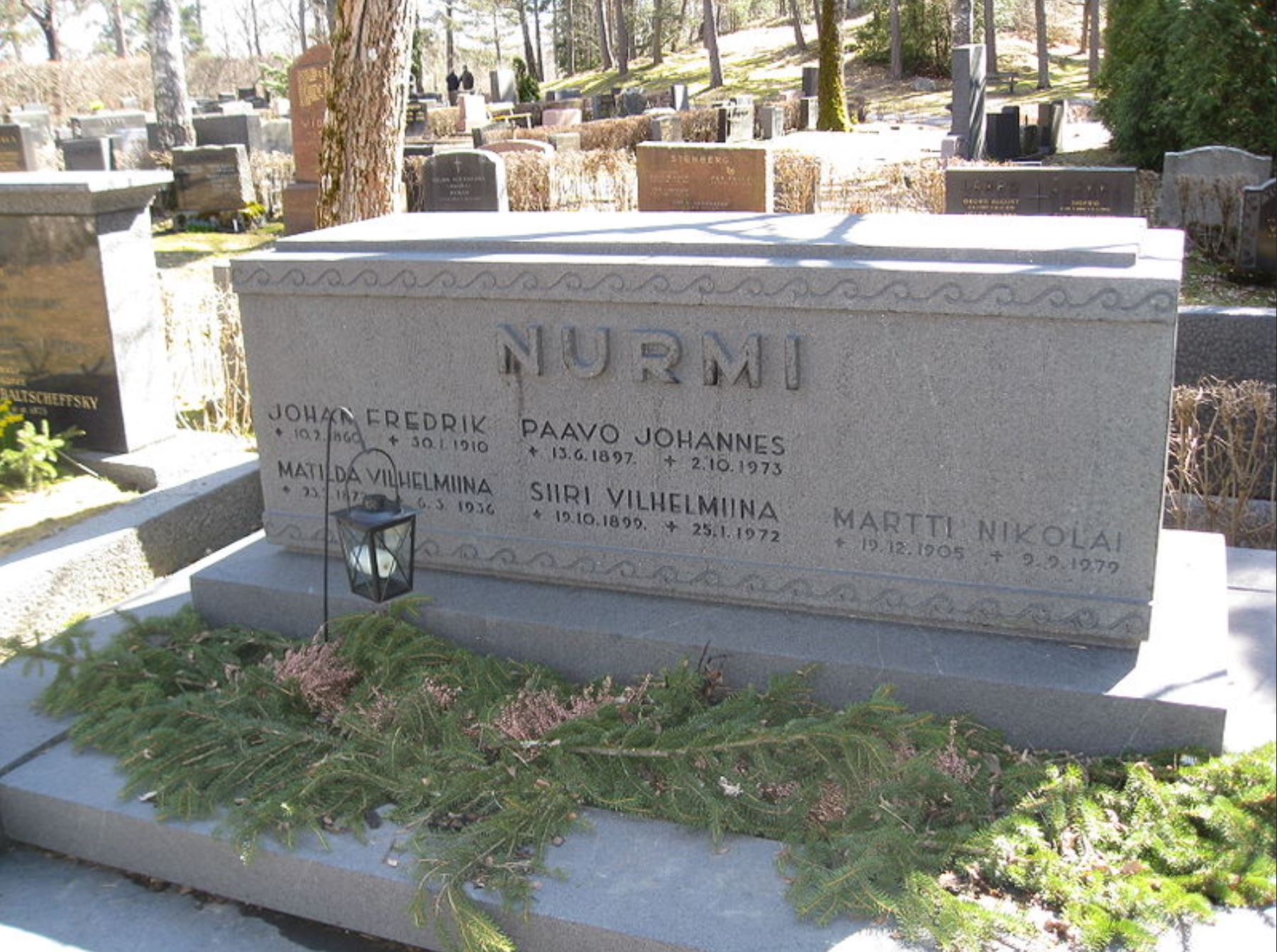Paavo Nurmi (Paavo Johannes Nurmi)

Paavo Johannes Nurmi (Finnish pronunciation: [ˈpɑːʋo ˈnurmi] 13 June 1897 – 2 October 1973) was a Finnish middle- and long-distance runner. He was nicknamed the “Flying Finn” as he dominated distance running in the early 20th century. Nurmi set 22 official world records at distances between 1500 metres and 20 kilometres, and won nine gold and three silver medals in his twelve events in the Olympic Games. At his peak, Nurmi was undefeated at distances from 800 m upwards for 121 races. Throughout his 14-year career, he remained unbeaten in cross country events and the 10,000 m. Born into a working-class family, Paavo Nurmi left school at 12 to provide for his family. In 1912, he was inspired by the Olympic feats of Hannes Kolehmainen and began developing a strict training program. Nurmi started to flourish during his military service, setting national records en route to his international debut at the 1920 Summer Olympics. After a silver medal in the 5000 m, he took gold in the 10,000 m and the cross country events. In 1923, Nurmi became the first, and so far only, runner to hold the world record in the mile, the 5000 m and the 10,000 m races at the same time. He went on to set new world records for the 1500 m and the 5000 m with just an hour between the races, and take gold medals in the distances in less than two hours at the 1924 Olympics. Seemingly untouched by the Paris heat wave, Paavo Nurmi won all his races and returned home with five gold medals, but embittered, as Finnish officials had refused to enter him for the 10,000 m. Struggling with injuries and motivation issues after his exhaustive U.S. tour in 1925, Nurmi found his long-time rivals Ville Ritola and Edvin Wide ever more serious challengers. At the 1928 Summer Olympics, Nurmi recaptured the 10,000 m title but was beaten for the gold in the 5000 m and the 3000 m steeplechase. He then turned his attention to longer distances, breaking the world records for events such as the one hour run and the 25-mile marathon.
Nurmi intended to end his career with a marathon gold medal, as his idol Kolehmainen had done. In a controversial case that strained Finland–Sweden relations and sparked an inter-IAAF battle, Nurmi was suspended before the 1932 Games by an IAAF council that questioned his amateur status. Two days before the opening ceremonies, the council rejected his entries. Although he was never declared a professional, Nurmi’s suspension became definite in 1934 and he retired from running. Paavo Nurmi later coached Finnish runners, raised funds for Finland during the Winter War, and worked as a haberdasher, building contractor, and share trader, eventually becoming one of Finland’s richest people. In 1952, he was the lighter of the Olympic Flame at the Summer Olympics in Helsinki. Nurmi’s speed and elusive personality spawned nicknames such as the “Phantom Finn”, while his achievements, training methods and running style influenced future generations of middle and long distance runners. Nurmi, who rarely ran without a stopwatch in his hand, has been credited for introducing the “even pace” strategy and analytic approach to running, and for making running a major international sport. He died in 1973 in Helsinki and was given a state funeral.
Born
- June, 13, 1897
- Turku, Finland
Died
- October, 02, 1973
- Helsinki, Finland
Cause of Death
- health issues
Cemetery
- Turku Cemetery
- Turku, Finland


